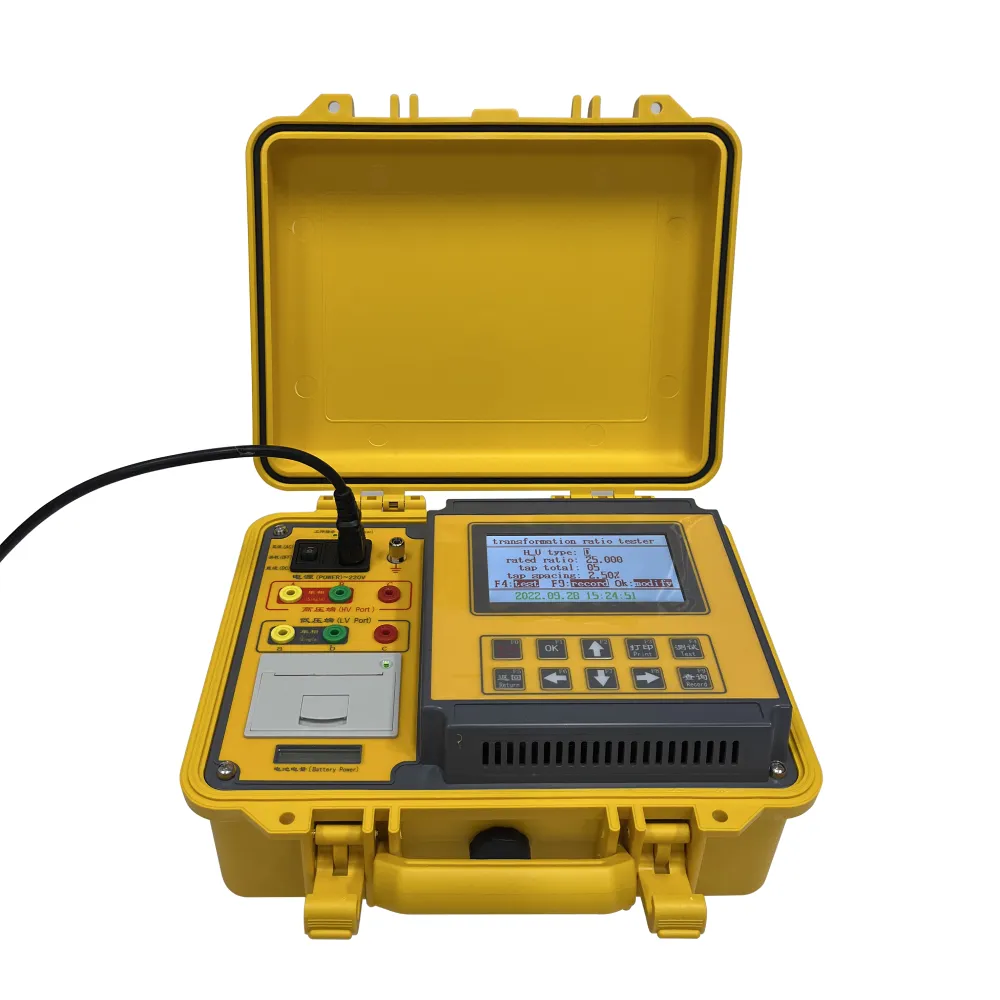 English
English


High Voltage Insulation Testing Equipment for Reliable Electrical Safety Applications
Understanding HV Insulation Testers Ensuring Safety and Reliability in Electrical Systems
High Voltage (HV) insulation testers are essential instruments used to assess the insulation integrity of electrical equipment and systems. These testers play a critical role in preventative maintenance, ensuring that electrical systems operate safely and effectively, thus avoiding potential failures, accidents, or hazardous situations. In this article, we will explore what HV insulation testers are, how they work, and their applications in various industries.
What is an HV Insulation Tester?
An HV insulation tester, also known as a megohmmeter, is an instrument specifically designed to apply a high voltage to an electrical insulation system and measure the resulting insulation resistance. This device helps in detecting degradation in insulation, which could lead to electrical failures. By assessing the quality of insulation, electricians and maintenance teams can identify potential issues before they escalate into serious problems.
How Does an HV Insulation Tester Work?
HV insulation testers work by applying a DC voltage (typically between 250V to 5kV) to the insulation material of electrical systems. This high voltage causes a current to flow through the insulation. The tester measures the amount of resistance to that flow, expressed in ohms. If the insulation is intact and in good condition, resistance will be high, indicating minimal leakage current. Conversely, if resistance is low, it signifies potential faults in the insulation that may warrant further investigation.
The insulation resistance value is essential. For example, in industrial settings, a resistance of 1 megaohm (MΩ) is often considered the minimum acceptable level, depending on the voltage class of the equipment. The results are typically displayed on a digital or analog meter, allowing for quick assessments.
Applications of HV Insulation Testers
hv insulation tester

HV insulation testers have a wide range of applications across various sectors, including
2. Manufacturing Electric motors, windings, and other components are routinely tested to prevent breakdowns that could halt production.
3. Renewable Energy As the use of solar photovoltaic (PV) systems and wind turbines increases, HV insulation testers are vital for ensuring the safety and performance of these installations.
4. Transportation Electrical systems in trains, airplanes, and ships require stringent insulation testing to ensure safety and compliance with regulations.
5. Residential and Commercial Buildings Insulation testers are also important in electrical maintenance within buildings to ensure the safety of electrical installations.
Conclusion
In conclusion, HV insulation testers are indispensable tools in the field of electrical maintenance and safety. Their ability to measure insulation resistance ensures that electrical systems remain reliable and safe for operation. By recognizing the importance of regular insulation testing, industries can proactively address potential issues before they result in costly failures or safety hazards. As technology continues to advance, the development of more sophisticated HV insulation testers will further enhance their functionality, providing better insights into insulation conditions and ultimately contributing to safer electrical systems.
-
Differences between open cup flash point tester and closed cup flash point testerNewsOct.31,2024
-
The Reliable Load Tap ChangerNewsOct.23,2024
-
The Essential Guide to Hipot TestersNewsOct.23,2024
-
The Digital Insulation TesterNewsOct.23,2024
-
The Best Earth Loop Impedance Tester for SaleNewsOct.23,2024
-
Tan Delta Tester--The Essential Tool for Electrical Insulation TestingNewsOct.23,2024





